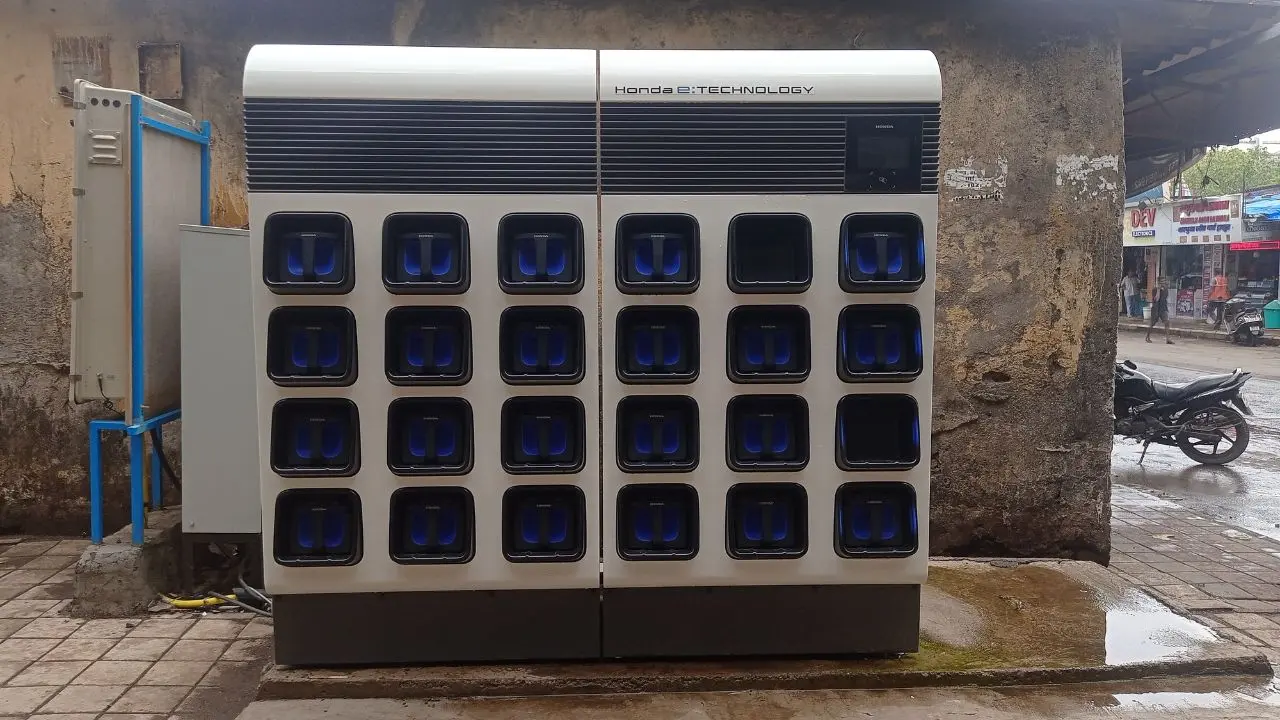The e-swap system enables electric two- and three-wheeler users to replace their depleted Mobile Power Pack e-battery with a fully charged one in under two minutes, boosting efficiency and convenience

All installations will adhere to strict safety, technical, and environmental standards, ensuring smooth access and high usability for daily EV users, including delivery agents and fleet operators.
On the occasion of Environment Day 2025, the Mumbai Metro Operation Corporation Ltd. (MMMOCL) partnered with Honda Power Pack Energy India Pvt Ltd to roll out e-swap battery swapping stations across 25 metro and six monorail stations in the city. This green mobility initiative makes Mumbai one of India’s first metros to integrate EV battery infrastructure into its public transport system.
The collaboration marks the first major implementation of MMMOCL’s EV Policy, which aims to promote clean energy and seamless last-mile connectivity.
Approved during the 29th Board Meeting chaired by MMRDA Commissioner Dr Sanjay Mukherjee (IAS), the policy sets the groundwork for sustainable transit solutions in the city.
The e-swap system enables electric two- and three-wheeler users to replace their depleted Mobile Power Pack e battery with a fully charged one in under two minutes, boosting efficiency and convenience for urban EV users.
E-swap battery swapping stations to be installed at the following locations:
1) Metro Line-7 (Red Line)
Gundavali, Mogra, Jogeshwari East, Goregaon East, Aarey, Dindoshi, Kurar, Akurli, Poisar, Devipada, Rashtriya Udyan
2) Metro Line-2A (Yellow Line)
Dahisar East, Anand Nagar, Kandarpada, Eksar, Borivali West, Shimpoli, Kandivali West, Dahanukarwadi, Malad West, Lower Malad, Bangur Nagar, Oshiwara, Lower Oshiwara, Andheri West
3) Monorail stations
Sant Gadge Maharaj Chowk, Mint Colony, Naigaon, Wadala, Fertiliser Township, Chembur
All installations will adhere to strict safety, technical, and environmental standards, ensuring smooth access and high usability for daily EV users, including delivery agents and fleet operators, MMRDA said.
The e-swap initiative brings both environmental and economic advantages, with MMMOCL expected to generate approximately Rs 30 lakh in non-fare box revenue (NFBR), supporting financial sustainability while advancing green mobility goals.
Speaking about the initiative, Maharashtra Chief Minister (CM) Devendra Fadnavis, said, "Our government is committed to accelerating electric mobility across Maharashtra. Battery swapping stations at metro and monorail nodes will support delivery personnel, daily riders, and fleet operators in making the EV shift. This initiative is a perfect example of how smart infrastructure and green technology can come together for public benefit."
Meanwhile, Deputy CM Eknath Shinde, who is also the MMRDA Chairman, stated that green infrastructure is not a luxury but a necessity for the state's future.
"Through initiatives like battery swapping at metro stations, we are building an integrated and climate-resilient mobility system that puts citizens and the environment first. I congratulate MMMOCL and Honda for taking this important step in advancing our state’s EV mission," he said.
According to MMMOCL Chairman Dr Sanjay Mukherjee, "This collaboration marks a significant stride in our mission to create a sustainable, low-emission urban ecosystem. By enabling quick and convenient battery swapping at metro and monorail locations, we are laying the foundation for future-ready transport. I’m pleased to share that the first e-swap centre is already installed at Dahisar East Metro Station."
 Subscribe today by clicking the link and stay updated with the latest news!" Click here!
Subscribe today by clicking the link and stay updated with the latest news!" Click here!








